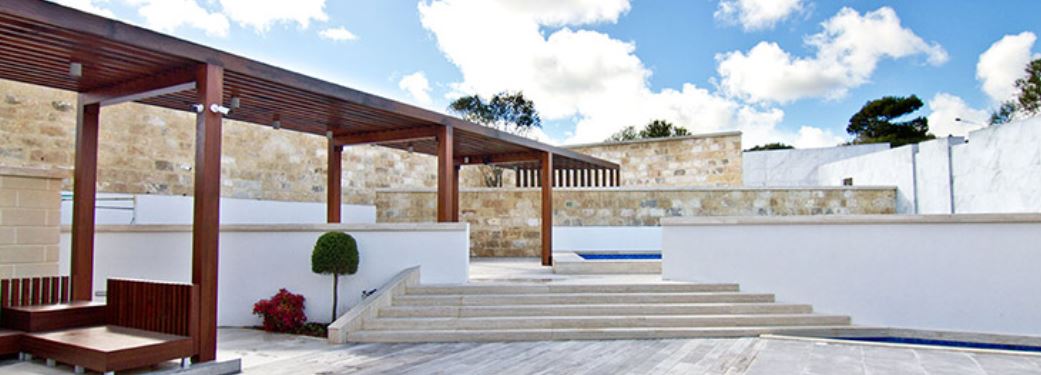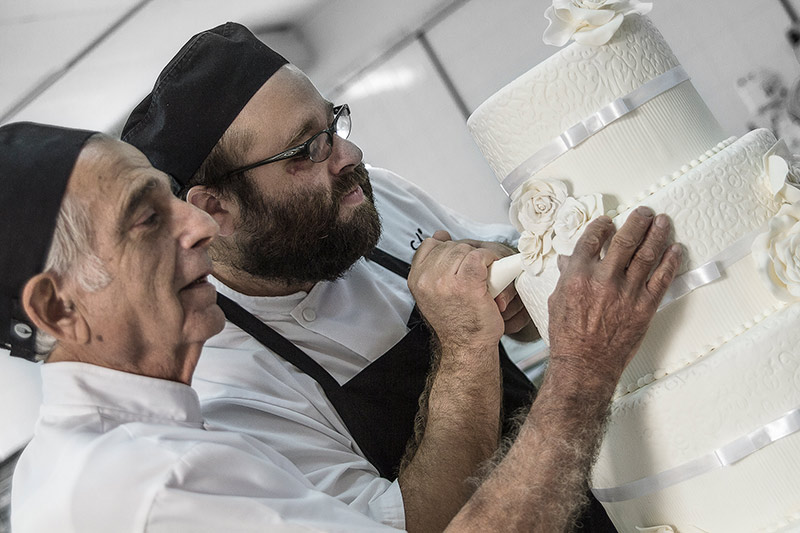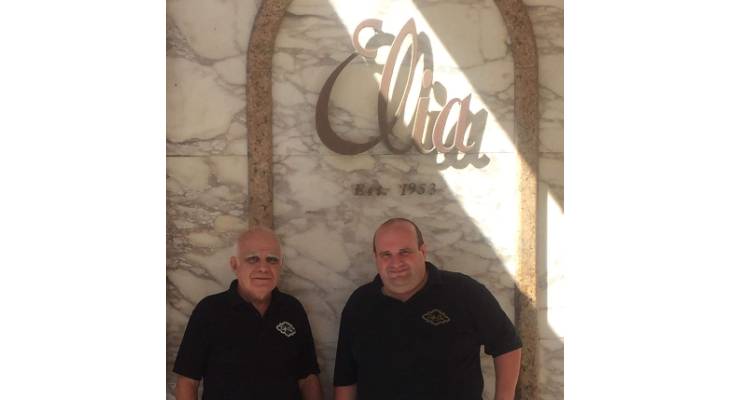Pawlu Borg Bonaci is a household name as an entertainer, and only slightly less so as a patissiere. Last September, in the midst of a global pandemic that left the company’s core wedding and event catering business on life support, he took over as Elia Borg Bonaci Ltd’s Managing Director.
This has been a heavy year for the family business set up by Mr Borg Bonaci's grandfather Nannu Elia, who learned the trade from his uncle, a Navy patissiere working out of what is now Tony’s Bar, Sliema. It included the passing away of several family members and the postponement of over 120 weddings, and many difficult decisions.
“If the employee suffers, I suffer with them,” insists Mr Borg Bonaci, who since taking on greater responsibilities within the company has become acutely aware that over 60 families depend on the organisation for their livelihood.
“I have never suffered insomnia,” he said. “But I couldn’t sleep for weeks and months, to this day.”
The approach yielded results, with not a single employee being asked to resign or made redundant.
The company has undertaken significant investments over the last few years, from opening the Giardini Lambrosa and Veranda venues to modernising the bakery through new machinery.

Giardini Lambrosa, Elia Borg Bonaci Ltd's new venue outside Mdina
“We have had a few good years that have allowed us to absorb the losses of this year. But of course, the bills need to be paid, even though weddings are postponed and corporate events are dead.”
Nonetheless, he believes the investments will continue paying off. “Business can’t stagnate,” he says. “It must progress, especially in a sector like ours where competition is very high,” pointing out that catering is part of the fashion industry. “We must move with the trends.”
Elia Café does not exactly scream “trendy”, and the family is very aware of that, with Mr Borg Bonaci even analysing, in the course of his studies in marketing, the dissonance between the modernity exuded by Elia Caterers and the traditional decor and menu of Elia Café, which he describes as “a little like a time machine”.
"The difference is there, and it's important because it represents our past, which we want to celebrate, and our future, which we want to work towards. We are striving to bring the two elements into a cohesive whole, to capitalise on the advantages of both," explains Mr Borg Bonaci.
He believes the opening of the company’s own event venue provided a breath of fresh air and new energy. The adoption of marketing strategies also helped professionalise the organisation, which previously depended on word-of-mouth.
“My Uncle Gejtu used to tell this joke to couples, that an Elia wedding is an Elia advert paid for by the couple. It’s cheeky but it’s true! And that’s part of our commitment. We cannot have a wedding that isn’t a good advert for us.”
The family’s passion for their business is evident. What’s the secret, I wonder, to keeping the family so closely involved?
He replies without hesitation. “We breathe catering. All my cousins and I, we have all worked in the company. We didn’t wake up one morning and say, oh, let’s take over our fathers’ company.”
He says his father was a huge influence, as he saw his cakes as a child and wanted to follow the same path. “I always wanted to be a cake decorator.” His father used to use a term that Mr Borg Bonaci found harsh, but now understands as an expression of what he terms la voglia. “He said jealousy towards his own father drove him. When he saw his father doing certain things, it instilled a desire to learn. And I used to feel the same!”

Pawlu Borg Bonaci was inspired to take up cake decorating by his father
Mr Borg Bonaci is grateful for the opportunities the family business has afforded him, but he does not shy away from acknowledging the many challenges it brings.
“The worst things are those you inherit from the previous generation,” he says, explaining that one of the challenges of a third generation family business is to get all the frivolous past problems unrelated to the business and throw them all away.
Only one tenth of family businesses even make it to the third generation, points out Mr Borg Bonaci. “So far we’ve managed, so we must be doing something well,” he laughs.
“Jokes aside, it’s an honour to be here. And I cannot overstress the importance of having outside help. A professional business consultant we employed some years ago has been an immense help. We were at a point where we were focusing inwards, focusing on each other, focusing on the problems. We were in a total business myopia.”
“When we suggested having an external person above all of us, it came as a shock for some, who implied that we might not be capable of taking it forward.”
“I replied, well, no! Five years ago? Hell no! There’s a difference between decorating cakes and running a business!”
He believes that when you have a family business, one has to accept that not everyone can do everything. “Apart from communication, which is key in every type of business,” he says, “the most important thing is to understand the role you’re doing. And there’s no role which is more or less important.”
For the born entertainer whose first job was preparing lard for the pastizzi, the offer to take over as Managing Director came as a shock.
“Sometimes I ask myself whether I am here because I deserve it or by default. And that troubles me.”
“Someone once told me, ‘you’re in the family business, you found everything ready and laid out for you’. But that’s not true. When you have all these responsibilities, you change. I’ve changed.”
The first question Mr Borg Bonaci asked when he was approached with the offer was whether he was indeed the best suited for it. "I didn’t want to take this role just because, but because the others really believed in me. I don’t want to be a burden at the end of the day."
“And I wanted to make it clear to them, that the only thing i would be doing was to see the vision, and make sure everyone is working towards achieving it.”
The respect between the cousins is evident when Elia, third of the name (and whose son is named Elia John), passes by.
Asked how they keep disagreements within the company, he says, “We learned. It wasn’t always like this, even between the brothers. We learned it through a bitter lesson.”
“For example, with Elia,” he says, pointing to his cousin, “we don’t always see eye to eye. But the respect I have for him now, after the experience of the pandemic, is incredible. I’d see him working breathlessly. Will he make mistakes? Undoubtedly, as will I, but because we see that we are committed, there is respect."
Elia chimes in, saying, “It’s important to admit mistakes. If you remain headstrong and refuse to admit, there will be problems. As there were with our fathers. We have the advantage of a mirror into our fathers’ experience.”

Elia Borg Bonaci with his late father
Mr Borg Bonaci agrees, admitting they have learned a lot from their fathers’ mistakes, not only from their successes and values.
“Look at the way they held meetings,” continues Elia. “They didn’t meet around a table. They would be working and a brother would come to say something, and the other would just say 'yes yes'. They would only have one meeting a year.”
“What we have now is different. There’s teamwork. We put our problem on the table and we approach it as a team."
This difference in approach was part of the changes necessary when the business moved into the third generation, Mr Borg Bonaci explains.
"Five brothers have a very different way of communicating from eight cousins," he says. "They had their own way of agreeing. The synergy between five brothers is not the same as that between eight cousins."
"Change is constant, in family and in business. The challenge is to manage it effectively, for the good of both."
Main Image:
